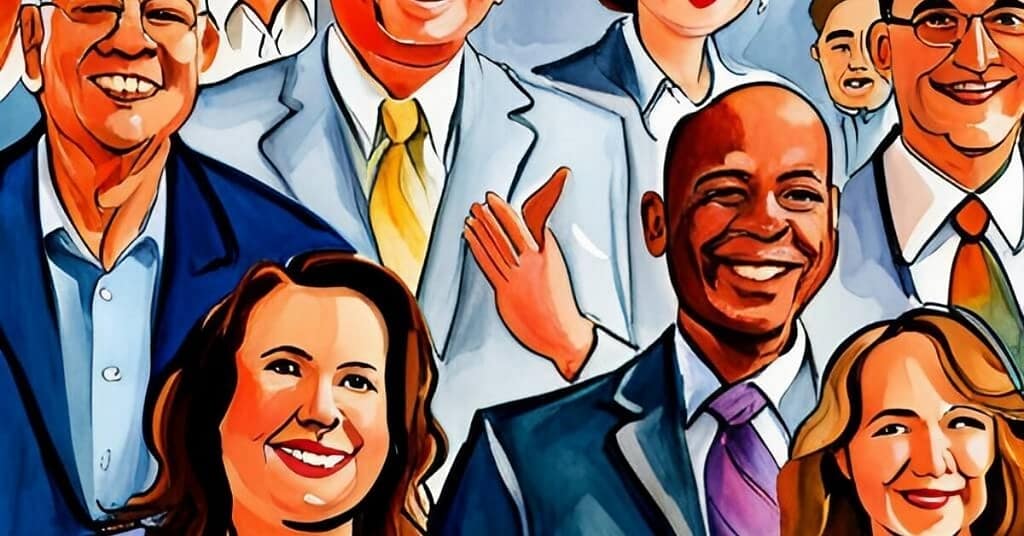Introduction
In today’s rapidly evolving job market, age discrimination remains a significant barrier for many job seekers and career changers. Often referred to as “ageism,” this form of discrimination can severely limit opportunities for older professionals, leading to frustration and a sense of worthlessness. As society ages and people work longer, it’s crucial to address this issue head-on, ensuring that experience and wisdom are valued rather than dismissed. This blog post aims to shed light on the roots of ageism, explore legal and ethical perspectives, and provide strategies and support for overcoming age discrimination.
Understanding Ageism
The Roots and Manifestations of Ageism
Ageism is rooted in societal stereotypes that associate aging with decline and obsolescence. These prejudices manifest in various ways, from overt discrimination during the hiring process to subtle biases in workplace culture. For instance, older job seekers might encounter coded language in job listings, such as “digital native” or “recent graduate,” which implicitly discourage them from applying. Moreover, assumptions that older workers are less adaptable to new technologies or resistant to change can further marginalize them.
Effects on Career Opportunities and Self-Esteem
The impact of ageism extends beyond missed career opportunities. It can significantly affect an individual’s self-esteem and mental health. Job seekers facing repeated rejections may internalize the bias, doubting their abilities and value. This negative self-perception can create a vicious cycle, making it even harder to present oneself confidently in job applications and interviews.
Legal and Ethical Perspectives
Laws and Regulations Against Age Discrimination
Fortunately, there are legal frameworks designed to protect workers against age discrimination. In the United States, for example, the Age Discrimination in Employment Act (ADEA) prohibits employment discrimination against individuals 40 years of age or older. Similar laws exist globally, providing a basis for job seekers to challenge discriminatory practices.
However, legal protection is only part of the solution. Awareness and enforcement are crucial. Many workers are unaware of their rights, and even when they are, they may be reluctant to pursue legal action due to fear of retaliation or prolonged legal battles.
Ethical Practices in Recruitment and Career Management
Beyond legal requirements, ethical considerations play a vital role in combating ageism. Employers should strive for inclusive recruitment practices that value diversity, including age diversity. This involves creating job descriptions that focus on skills and experience rather than age proxies, implementing unbiased interview processes, and fostering a workplace culture that respects and leverages the strengths of employees of all ages.
Overcoming Age Discrimination
Tips for Job Seekers and Career Changers
Overcoming age bias requires a proactive approach. Here are some practical tips for job seekers and career changers:
- Update Your Skills: Continuously invest in learning new skills, especially in technology and industry-specific tools. Online courses, certifications, and workshops can demonstrate your commitment to staying current.
- Revamp Your Resume: Focus on recent accomplishments and relevant skills. Avoid listing every job you’ve ever had; instead, highlight experiences that align with the position you’re seeking. Remove outdated information that may betray your age.
- Leverage Social Media: Build a strong online presence on platforms like LinkedIn. Share industry insights, engage with professional communities, and showcase your expertise. A vibrant online profile can counteract stereotypes about older workers being out of touch with modern trends.
- Emphasize Adaptability: In interviews and cover letters, stress your ability to adapt to change and learn new things. Provide examples of how you’ve successfully navigated transitions in your career.
Presenting Experience as an Asset
Rather than viewing age as a liability, frame your extensive experience as a unique asset. Highlight how your years in the workforce have equipped you with valuable skills such as leadership, problem-solving, and industry knowledge. Use your history as a testament to your reliability and commitment.
Empowerment and Support
The Role of Mentorship, Networking, and Community Support
Building a network of support is critical in overcoming age discrimination. Engage in mentorship programs, both as a mentor and mentee. Sharing knowledge and learning from others can boost your confidence and expand your opportunities.
Networking events, professional associations, and online communities can also provide valuable connections and support. Don’t hesitate to reach out to peers and industry contacts for advice, referrals, and encouragement.
Success Stories and Insights
Hearing from those who have successfully navigated ageism can be incredibly empowering. For example, consider the story of Jane, a marketing professional who, after being laid off at 55, used her network to land a consultancy role. By leveraging her experience and staying current with digital marketing trends, she eventually transitioned into a full-time position with a dynamic startup.
Conclusion
Age discrimination in the job market is a pervasive issue that requires concerted efforts to address. By understanding the roots of ageism, leveraging legal and ethical frameworks, and employing proactive strategies, job seekers and career changers can navigate and overcome age bias. Remember, your experience is a valuable asset that deserves recognition and respect.
Together, we can advocate for a job market that values diversity and inclusivity. If you’ve faced age discrimination or have tips and stories to share, join the conversation and help us build a more equitable future for all professionals.
For more resources and support, stay connected with our community. Let’s champion the cause against ageism and empower each other to succeed.


